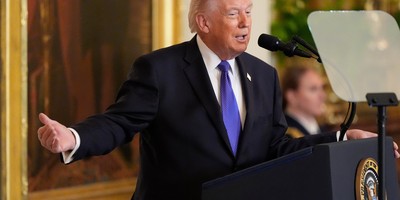With a month to go before California voters decide whether to legalize marijuana, Proposition 19's opponents have pinned their hopes on desperate arguments that illustrate the intellectual bankruptcy of the prohibitionist position. Unable to offer a persuasive moral justification for continuing to treat marijuana users and suppliers like criminals, the No on 19 crowd has tried to distract voters' attention with several bright red herrings. Here are five of the smelliest:
Proposition 19 won't produce any tax revenue, because everyone will grow his own pot. The initiative would allow adults 21 or older to possess up to an ounce of marijuana and grow it for their own use, while authorizing local governments to license and regulate commercial production and distribution. Although "people don't typically grow their own tobacco or distill their own spirits," say six former federal drug czars, marijuana is different because it is "easy and cheap to cultivate." One could also say that beer is "easy and cheap" to make, but most people, including home brewers, still buy it in stores, where the supply is more reliable and varied. Accounting for the time and effort required to brew your own beer, buying it in the store is cheaper, too, even though you have to pay taxes on it.
Proposition 19 will make it "perfectly legal to smoke or ingest marijuana immediately prior to driving." So claims Bishop Ron Allen of Sacramento's Greater Solomon Temple Community Church, a leader of the campaign against the initiative. Yet Proposition 19 would do nothing to change California's law against driving under the influence of drugs. That law, which applies to all psychoactive substances other than alcohol, regardless of their legal status, requires evidence of impairment coupled with evidence of drug consumption.
Proposition 19 will give employees "a clear right to smoke on the job." That's according to the Los Angeles Daily News, but not according to the initiative itself, which explicitly preserves the right of employers to set rules concerning drug use that are related to safety or job performance. A ban on getting stoned at work clearly would fall into that category.
Recommended
Proposition 19's will lead to "a regulatory nightmare." The Sacramento Bee, like several other newspapers, sees the "mishmash of rules" that will result from allowing local governments to regulate marijuana sales as intolerable, declaring, "The laws governing marijuana should be uniform across the state, as they are for alcohol." Except that they're not, as anyone who has tried to buy beer after midnight on the wrong side of La Cienega Boulevard in Los Angeles County could tell you. Other states allow even more variation, letting counties, cities and parts of cities vote themselves dry.
Proposition 19 is unconstitutional. Nine former heads of the Drug Enforcement Administration claim the initiative conflicts with the federal Controlled Substances Act and therefore violates the Supremacy Clause, which says "this Constitution, and the laws of the United States which shall be made in pursuance thereof ... shall be the supreme law of the land."
The Supreme Court has upheld national marijuana prohibition, even as applied to purely intrastate cultivation and possession of the drug, through an absurdly broad reading of the federal government's authority to "regulate commerce ... among the several states." But it has never held that the Constitution requires states to impose their own penalties for crimes created by Congress.
Assuming Californians approve Proposition 19, which is ahead by 11 percentage points in the latest poll by the Public Policy Institute of California, the feds will not have the resources to enforce marijuana prohibition throughout the state on their own. That's a good thing, since the freedom to experiment with different policies is one of federalism's main virtues. If the nightmare scenarios described by Proposition 19's opponents come to pass, the rest of the country will learn from California's example. And if they don't, that also will be instructive, which is why federal drug warriors are so determined to defeat the initiative.

























Join the conversation as a VIP Member